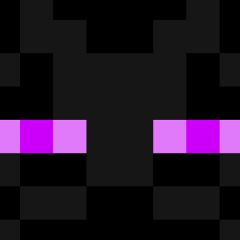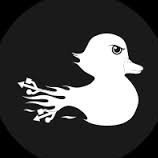Search the Community
Showing results for tags 'word'.
-
Hello Forum! I have a Word VBA Macro that inserts an image. I rebuilt the same behavior in AutoIt. Everything works the same except of one tiny difference. In VBA the image does NOT move down when i manually press <ENTER> after the Macro was running. In Autoit the image DOES move down when i press <ENTER> after the Script was running. Adding the image is just the beginning of the script. More Text will be added after. When i press <END> and then <ENTER> the behavior is the same again as in VBA. I tryd already several things but i do not want to hack in a Send("{END}") VBA: ' LOGO ---------------------------------------------------------------------------------------------------------------------- Dim Img As String Dim inlineShape As inlineShape Dim shape As shape Img = "C:\Logo.png" Set inlineShape = Selection.InlineShapes.AddPicture(FileName:=Img, LinkToFile:=False, SaveWithDocument:=True) inlineShape.LockAspectRatio = msoTrue inlineShape.width = CentimetersToPoints(9.58) Selection.ParagraphFormat.Alignment = wdAlignParagraphCenter Set shape = inlineShape.ConvertToShape shape.WrapFormat.Type = wdWrapMergeFront ' Set wrapping type to "Top and Bottom" < This is not wrong! ' Texts ------------------------------------------------------------------------------------------------------------------------ Selection.ParagraphFormat.Alignment = wdAlignParagraphLeft Selection.ParagraphFormat.SpaceAfter = 10 'Selection.TypeParagraph AutoIt: #include <Word.au3> #include "WordConstants.au3" Global $oRange Global Const $wdAlignParagraphCenter = 1 ; Align Center Global Const $wdAlignParagraphLeft = 0 ; Align Left Global Const $wdWrapMergeFront = 4 ; In front of Text Global $Bild = @ScriptDir & "\Logo.png" Global $oWordApp = _Word_Create(); Start Word Global $oDoc = _Word_DocAdd($oWordApp); Create Document Global $oInlineShape = $oDoc.InlineShapes.AddPicture($Bild, False, True) $oInlineShape.LockAspectRatio = True $oInlineShape.width = CentimetersToPoints(9.58) $oRange = $oInlineShape.Range $oRange.ParagraphFormat.Alignment = $wdAlignParagraphCenter ; Center Global $oShape = $oInlineShape.ConvertToShape ; Convert InlineShape to Shape $oShape.WrapFormat.Type = $wdWrapMergeFront ; Set wrapping type to "Top and Bottom" < "MergeFront" selects "Top and Bottom" in Word $oRange = _Word_DocRangeSet($oDoc, 0) $oRange.ParagraphFormat.Alignment = $wdAlignParagraphLeft ; Align Left $oRange.ParagraphFormat.SpaceAfter = 10 ;$oWordApp.Selection.TypeParagraph ;$oRange.InsertAfter("Inserted text after range.") ;$oRange.EndKey($wdLine,0) ;$oRange.Text = @CRLF ;$oRange.Collapse($wdCollapseEnd)
-
Dear all, I am working on automation of ms word, on which my scripts runs with multiple word document at a time. But I wanted all the word to be running in the background. do we have any UDF available? Please help. BR, VinMe
-
Hello, I wrote a small AutoIt App which takes DOS formatted textfiles and forwards them to MS Word. I searched a lot for a programm which does this, but I didn't find one. The reason for it is an old DOS program, which is used a lot, even today. The user wanted to print the output of that programm with some other font-size, font-style and so on... We used WinPrint, but this is a printing only app, so no formatting can be done afterwards... The solution was, to print with the DOS prgramm to an file, e.g. C:\12345\output.txt ... then read this file, convert it to unicode, put this into word with some pre-defined font / page size and so on ... and then the user can re-format or print it now. Here is the main function of the Dos2Word programm I wrote: Func Convert2Word() ; keine datei da... If Not FileExists($sFilePath) Then Return ; noch in Beaarbeitung... If _WinAPI_FileInUse($sFilePath) Then Return ; nun aber... Local $sFilePathTemp = $sFilePath & "_" & _WinAPI_CreateGUID() & ".txt" FileMove($sFilePath, $sFilePathTemp, $FC_OVERWRITE) ; open word and create new document Local $oWord = _Word_Create() If @error Then ErrorExit("Fehler bei _Word_Create()") Local $oDoc = _Word_DocAdd($oWord) If @error Then ErrorExit("Fehler bei _Word_DocAdd()") ; seite definieren With $oDoc.PageSetup .PageHeight = $sPageHeight .PageWidth = $sPageWidth .TopMargin = $sTopMargin .BottomMargin = $sBottomMargin .LeftMargin = $sLeftMargin .RightMargin = $sRightMargin EndWith ; schrift und absatz With $oDoc.Range .Font.Name = $sFontName .Font.Size = $sFontSize EndWith With $oDoc.Range.ParagraphFormat .SpaceBefore = 0 .SpaceAfter = 0 .LineUnitBefore = 0 .LineUnitAfter = 0 .LineSpacingRule = 0 EndWith Local $hFile = FileOpen($sFilePathTemp, BitOR($FO_READ, $FO_BINARY)) Local $iError Local $iLine = 1 Do Local $sLine = FileReadLine($hFile, $iLine) $iError = @error $iLine += 1 ; ignore special escape line of cm.exe If StringLeft($sLine, 2) = Chr(27) & Chr(64) Then $sLine = StringTrimLeft($sLine, 2) $oDoc.Range.insertAfter(_WinAPI_MultiByteToWideChar($sLine, $sCodePage, 0, True) & @CRLF) Until $iError <> 0 ; und am ende löschen, sofern gewünscht FileClose($hFile) If $sFilesDelete <> "0" Then FileDelete($sFilePathTemp) EndFunc ;==>Convert2Word The Homepage of the program is here: https://mcmilk.de/projects/Dos2Word/ The full source code and precompild signed binaries for 32bit and 64bit systems are also there, the License is GPLv2 With best regards, Milky Maybe someone finds it useful too
-
Hello, so I have started to learn to use the Word UDF and got issue to add my pictures after exact paragraphs. I was searching in the forum for the solution, checked with examples and still I don't understand how to add pictures after paragraph in new line. My word document has like 8 pages and for example on page I have paragraph named "My examples:" and here starts my problem. I have tried to do this: #include <Word.au3> Local $oWord = _Word_Create() Local $oDoc = _Word_DocOpen($Word, @ScriptDir & "\examples.docx", Default, Default, True) $oSearchRange = _Word_DocRangeSet($oDoc, -1, $wdParagraph, 0) $oRangeFound = _Word_DocFind($oDoc, "My examples:", $oSearchRange) _Word_DocPictureAdd($oDoc, @ScriptDir & "\pic1.jpg", Default, Default, $oRangeFound) And here the picture adds before the paragraph My examples: on same line and looks like {pic1}My Examples: What I want to see is: My examples: {PICTURE IN NEW LINE} which is pic1.jpg from my code. How I can do that? I want to add 3 pictures in a row in new line each like: My examples: {pic1.jpg} {pic2.jpg} {pic3.jpg} Hope I explained this well, but you can ask me if you need any additional information to clarify.
-
I'm trying to get the number of columns in a specific row in a Word table and am stuck. I need a push. Program below and Word file attached. Thanks. #AutoIt3Wrapper_run_debug_mode=Y ;use this to debug in console window #include <Word.au3> $oWord = _Word_Create(True, True) ;Create Word application object, make it visible, and force a new instance of Word $oDoc = _Word_DocOpen($oWord, @ScriptDir&"\ColumnTest.docx", Default, Default, True) ;Open the Word document $iTablesCount = $oDoc.Tables.Count ;get Tables count in $oDoc Pause("$iTablesCount = '" & $iTablesCount & "'") $iRowCount = $oDoc.Tables.Item(1).Rows.Count ;Table hard coded $iColCount = $oDoc.Tables.Item(1).Columns.Count Pause("Table#1 $iRowCount = '" & $iRowCount & " $iColCount = '" & $iColCount & "'") ;trying to get the number of columns in each row ;$ColCountInRow = $oDoc.Tables.Item(1).Rows(1).Columns.Count ;this fails and read somewhere to use Cells.Count $ColCountInRow = $oDoc.Tables.Item(1).Rows(1).Cells.Count ;hard code Row 1 <<<<< ERROR here ;this is the error I get ;: ==> The requested action with this object has failed.: ;$ColCountInRow = $oDoc.Tables.Item(1).Rows(1).Cells.Count ;$ColCountInRow = $oDoc.Tables.Item(1)^ ERROR Pause("Row 1 has " & $ColCountInRow & " Columns") Exit Func Pause($text="") MsgBox(262144, "DEBUG", "Paused: " & $text) EndFunc ColumnTest.docx
-
Hello! i wrote this function as alternative to using the Com Object or Commandline version of this project, discussed also earlyer on this forum. Project site - http://ebstudio.info/home/xdoc2txt.html Advantage of this implementation is that you do not need to register Com dll, using regsvr32. But you still need the project Dll (xd2txlib.dll). Enjoy! ; #FUNCTION# ==================================================================================================================== ; Name ..........: _ExtractText ; Description ...: Extracts text from advanced documment formats (Doc, Docx, ODT, XLS, ...) ; Syntax ........: _ExtractText($sFilename[, $bProperties = False[, $hDll = 0]]) ; Parameters ....: $sFilename - a string value. ; $bProperties - [optional] a boolean value. Default is False. If True, documment properties will be returned instead of the text. ; $hDll - [optional] a handle value. Default is 0. Optional handle to previously opened xd2txlib.dll. By default the xd2txlib.dll (Expected in @scriptdir) will be opened and closed during the function call. ; Return value .: String, containing the text or documment properties or empty string and Error as follows: ;1 - The file does not exists. ;2 - Error during opening xd2txlib.dll. ;3 - No text returned. ; Author ........: Fenzik ; Modified ......: ; Remarks .......: Project site - http://ebstudio.info/home/xdoc2txt.html ; Related .......: ; Link ..........: ; Example .......: No ; =============================================================================================================================== Func _ExtractText($sFilename, $bProperties = False, $hDll = 0) If Not FileExists($sFilename) Then Return SetError(1, "", "") Local $bLoaded = False If $hDll = 0 Then $hDll = DllOpen(@scriptdir&"\xd2txlib.dll") If $hDll = -1 Then Return SetError(2, "", "") $bLoaded = True Endif $aResult = DllCall($hDll, "int:cdecl", "ExtractText", "WSTR", $sFilename, "BOOL", $bProperties, "WSTR*", "") If $aResult[0] = 0 Then Return SetError(3, "", "") If $bLoaded = True Then DllClose($hDll) Return $aResult[3] EndFunc xd2txlib-example.zip
- 14 replies
-
- text extraction
- word
-
(and 3 more)
Tagged with:
-
Hello, I am trying to save an word document but it won't work , This is my REALLY simple script: #include <Word.au3> Global $oWord = _Word_Create(False, True) _Word_DocSaveAs($oWord) MsgBox(0, @error, @extended) And my MsgBox: I know that its a COM error because @error is set 2... but what about the COM error code? I cannot find anything related to -2147352570!
-
I have a Word document containing a 9-column table where row 1 is the column headers. My goal is to read the table into a 2d array, remove some rows, update some fields, and add a few rows to the end. The resulting array will likely be a different length. Next, I want to write the data back into the table. If it's easier, I can write the data to a new document from a template containing the same table header with a blank 2nd row. Here's my early attempt: Local $oWord = _Word_Create() Local $oDoc = _Word_DocOpen($oWord, $sFile) Local $aData = _Word_DocTableRead($oDoc, 1) $aData[3][5] = "Something else" Local $oRange = _Word_DocRangeSet($oDoc, 0) $oRange = _Word_DocRangeSet($oDoc, $oRange, $wdCell, 9) _Word_DocTableWrite($oRange,$aData) This, unfortunately, writes the entire array into the first cell of row 2. What am I doing wrong?
-
Backstory: Our Microsoft Office Templates shared folder was changed from a DFS share to an Isilon share. example: Old Server: \\Domain.com\Office\Templates New Server: \\Templates.domain.com\Office\Templates The team making the changes overlooked that several hundred thousand documents, had been attached to the old template documents. So when you open a document which has been attached, it will take a couple of minutes to open, while it tries to locate the old server path. I've been asked to come in and fix it, so after several hours found that the data is being held in document.zip\word\_rels\settings.xml.rels, I now need to replace the old server path with the new server path. I didn't want to use dom as that would take too long and found a tool wtc https://github.com/NeosIT/wtc which works perfectly, takes about 8 minutes to scan a single directory with 4000 documents and fix them. The problem is the documents are all held on sharepoint and they want to retain the file timestamp, which is easy enough, but they also don't want to keep the "Modified By" apparently they don't like seeing all the documents appearing as "Modified by: Subz" Anyone know of way to retain the "Modified By" info,
- 1 reply
-
- sharepoint
- word
-
(and 1 more)
Tagged with:
-
Good evening everyone I am working with Word UDF ( thanks @water! ), and, especially, with the function _Word_DocFindReplace(). The replace does work everywhere in the document, but, it does not work in Headers or Footers. Am I missing something or am I forced to use the code below? I have already looked in the Help file ( about _Word_DocFindReplace() ), but there are no mentions about replace text in Headers/Footers. Sub FindAndReplaceFirstStoryOfEachType() Dim rngStory As Range For Each rngStory In ActiveDocument.StoryRanges With rngStory.Find .Text = "find text" .Replacement.Text = "I'm found .Wrap = wdFindContinue .Execute Replace:=wdReplaceAll End With Next rngStory End Sub Thanks everyone in advance Best Regards.
-
Hello, im working on a Script that should change a high amount of Word Templates at once. Target is to open each Templatefile (.dotx) in a specific folder and do the following steps: Add a page break at the end of the document (works) Add a text on the created Page (works) Change the headerstyle to blank for the new page and the following (missing) Add a heading between two specific headings (missing) Can please someone help me to add the 2 functions to the script? #include <word.au3> #include <File.au3> #include <array.au3> ; wdGoToDirection Const $wdGoToNext = 2 ; wdGoToItem Const $wdGoToPage = 1 ; Created a logfile for tracking/error reporting on my local desktop, though anywhere would work. Needs to be changed or it will error. Global $LogFile = FileOpen("c:\logfiles\test.log", 1) ; This is the network path, change it or this will error as it is. ListFiles ("D:\Templates\") Global $loopend=$aFileList[0] ; Creates an instance of Word for the program to use. Logs any errors associated. Global $oWord = _Word_Create(False, False) If @error <> 0 Then Exit _FileWriteLog($LogFile, "Error creating a new Word application object. @error = " & @error & ", @extended = " & @extended & @crlf) If @extended = 1 Then _FileWriteLog ($LogFile, "MS Word was not running when _Word_Create was called." & @CRLF) Else _FileWriteLog ($LogFile, "MS Word was already running when _Word_Create was called." & @CRLF) EndIf ; Logs and begins loop _FileWriteLog ($LogFile, "Beginning Loop." & @CRLF) For $looper = 1 to $loopend Step +1 _FileWriteLog ($LogFile, "Modifying file: " & $aFileList[$looper], " ") OpenAndModify ("D:\Templates\" & $aFileList[$looper]) Next ; Closes instance of Word _Word_Quit ($oWord) _FileWriteLog ($LogFile, "Program Completed.") ; Begins Function section ; Two functions, Listfiles and OpenAndModify Func ListFiles($FolderPath) ; Function puts all files in the network folder into an array. Logs any errors. _FileWriteLog ($LogFile, "Getting File Information for: " & $FolderPath & @crlf) Global $aFileList = _FileListToArray($FolderPath, "*") If @error = 1 Then _FileWriteLog($LogFile, "Path was invalid." & @crlf) EndIf If @error = 4 Then _FileWriteLog ($LogFile, "No file(s) were found." & @crlf) EndIf EndFunc Func OpenAndModify ($sDocument) ; Function opens file and changes the Page Setup ; Opens the Document Local $oDoc = _Word_DocOpen ($oWord, $sDocument, Default, Default, Default) If @error <> 0 Then _FileWriteLog ($LogFile, "Error opening " & $sDocument & " @error = " & @error & ", @extended = " & @extended & @crlf) & Exit ; Changes Tray Settings ;$oDoc.PageSetup.FirstPageTray = 0 ;$oDoc.PageSetup.OtherPagesTray = 0 ; Add a link to the end of the document and set parameters ; ScreenTip and TextToDisplay Local $oRange = _Word_DocRangeSet($oDoc, -2); Go to end of document $oRange.InsertBreak($wdPageBreak) ;MsgBox($MB_SYSTEMMODAL, "Word UDF: _Word_DocRangeSet Example", "Inserted a break.") $oRange.Text = "«Text»" ; Add a space at the end of the document $oRange = _Word_DocRangeSet($oDoc, -2) If @error Then Exit MsgBox($MB_SYSTEMMODAL, "Word UDF: _Word_DocLinkAdd Example", _ "Error adding a link to the document." & @CRLF & "@error = " & @error & ", @extended = " & @extended) MsgBox($MB_SYSTEMMODAL, "Word UDF: _Word_DocLinkAdd Example", "Baustein wurde an das Ende des Dokuments eingefügt.") ; Saves the document _Word_DocSave($oDoc) _FileWriteLog ($LogFile, "Modification of" & $sDocument & " complete." & @CRLF) EndFunc
-
Hello Is there anyway to store word documents in Autoit GUI? For example I have a instruction sheet that I want to bundle up with the exe. So a user simply clicks the icon and the stored document will launch (Something like how you can add objects like excel sheets in word documents ) (I Know we can launch word files from script directory)
-
I've failed to find an example of _Word_DocFindReplace which searches for formatted text (I'm looking for stand alone paragraph marks that are formatted other than normal i.e. Bold Italic, Underlined). The reason being that when converting a Word document to html one of the main problems in the results is that a stand alone paragraph mark is converted to an html space that retains the formatting ...> <... thus showing up as a underline _ in a browser when it should be blank. I've played around with the script and got it to at least un-bold the first paragraph mark regardless if it was bold or not but I'd like to clear all formatting from any stand alone paragraph marks in the whole document. Below is what I've done so far (not much more than in the help file I'm afraid) . Way down at the bottom of the _Word_DocFindReplace help text is this parameter but without any examples to be found : $bFormat [optional] True to have the find operation locate formatting in addition to or instead of the find text (default = False) #include <MsgBoxConstants.au3> #include <Word.au3> $processing = @MyDocumentsDir & '\AutoIt_code\getter\processing\' Global $oWord = _Word_Create() Global $sTestfile = $processing & "Testing.docx" ConsoleWrite($sTestfile & @CRLF) Global $oDoc = _Word_DocOpen($oWord, $sTestfile) If @error Then Exit MsgBox($MB_SYSTEMMODAL, "ERROR", "Error opening file = '" & $sTestfile & "'" & @CRLF & "@error = " & @error & ", @extended = " & @extended) $oRangeFound = _Word_DocFind($oDoc, "^p", Default, Default) If @error Then Exit MsgBox($MB_SYSTEMMODAL, "Word UDF: _Word_DocFind Example", _ "Error locating paragraph control character in the document." & @CRLF & "@error = " & @error & ", @extended = " & @extended) $oRangeFound.Bold = False If @error Then Exit MsgBox($MB_SYSTEMMODAL, "Word UDF: _Word_DocFind Example", _ "Error inserting text after the paragraph control character in the document." & @CRLF & "@error = " & @error & _ ", @extended = " & @extended) MsgBox($MB_SYSTEMMODAL, "Word UDF: _Word_DocFind Example", "Paragraph control character successfully replaced." & @CRLF & _ "Text inserted in paragraph 2.")
-
I'm using the Word UDF for the first time, and I'm having some trouble with _Word_DocFind(). There isn't really much talk around the forums about this so it's hard to find any support on the issue I'm having. Here's my code: #include <Word.au3> $listPath = @ScriptDir & "\AMCH OFFSET 042617.docx" $pWord = _Word_Create() $oWord = _Word_DocOpen($pWord, $listPath) Local $ctr = 0 Local $searchRange = _Word_DocFind($oWord, "Claim Number") If Not @error Then $ctr += 1 EndIf While ($searchRange <> 0) $searchRange = _Word_DocFind($oWord, "Claim Number", 0, $searchRange) If Not @error Then $ctr += 1 EndIf $searchRange.Select WEnd My problem is that it doesn't seem to find a match of the string on any page after the second. When I run the script, it just loops indefinitely on the second page. I can't post an example of the word document because it is medical data, but every page is basically the same and every page has the string I am looking for on it. Also I tried checking @error after doing a find and it is never set, so I don't think that's the problem.
-
Good morning everyone I am working on a little script, which takes some data from a SQLite DB and should create a sort of report, inserting rows in a Word Document... I arrived at the point of: _Word_DocTableWrite() and, I don't know how to set the range parameter? What does that specify? Thanks a lot for the help EDIT: Managed to write a table in the Word document, but now I get an error when I save the document with _Word_DocSaveAs(), with error 2. Which are possible causes? Thanks a lot, again EDIT 2: ... And, how can I set a border to the table? Maybe, with a sort of auto-formatting for text ( larger is the text, larger is the height/width of the table's cell ). Thanks EDIT 3 ( bug ): Including the parameter $WdSaveChanges in the function _Word_DocSaveAs(), a save dialog box appears, and it should not do it, as it's written in the MSDN documentation: wdSaveChanges -1 Save pending changes automatically without prompting the user. Thanks again for everyone will answer to me
-
I'm attempting to read each line of a word document and assign the line to a variable. Similarly to how you can read a line from a text file (.txt or .csv) using FileReadLine(). So far i have been unsuccessful in reading from a .doc/.docx file, nor have i found any documentation that has helped. In searching for a solution i did find a function to convert the word doc to a text file, however my script is for (PCI) auditing purposes and i do not want to create a new file on the HDD. I have also read through the _Word UDF help files... Unless im not understanding the _Word UDF correctly, I did not see anything that functions similarly to the FileReadLine function. Any help/advice is greatly appreciated! Here is what i have been attempting to do(doesn't work): #include <file.au3> #include <Array.au3> #include <LuhnCheck.au3> #include <Excel.au3> #include <Word.au3> Global $sPath = 'C:\Users\' Global $filePath Global $pii = @ScriptDir & '\pii_CreditCard.csv' Global $filesArray = _FileListToArrayRec($sPath , '*.txt;*.csv;*.doc;*.docx;*.xls;*.xlsx',1,1,0,2) For $i = 1 to $filesArray[0] ;Loop through file extensions and add files to the fileArray ;Assign the position in the filesArray to filePath (filePath is set to full path in FileListToArrayRec) $filePath = $filesArray[$i] readFile($filePath) Next Func readFile($file) If StringInStr($file, '.txt') Or StringInStr($file, '.csv') Then ; .txt file readTxtFile($file) ElseIf StringInStr($file, '.doc') Then ; .doc & .docx files ;============================================== part that does not work========================= Local $oWord = _Word_Create() ;$openFile = FileOpen($file, 0); While 1 Local $line = FileReadLine(_Word_DocOpen($oWord, $file, Default, Default, True)) If @error = -1 Then ExitLoop ;lookForCreditCardNumbers($line) MsgBox(0,0, $line) WEnd FileClose($openFile) ;============================================== part that does not work========================== EndIf EndFunc Func readTxtFile($fileToOpen) $openFile = FileOpen($fileToOpen, 0); open file for reading and assing it to the openFile variable While 1 Local $line = FileReadLine($openFile) If @error = -1 Then ExitLoop lookForCreditCardNumbers($line) WEnd FileClose($openFile) EndFunc Func lookForCreditCardNumbers($evaluateString) $aResult = StringRegExp($evaluateString, '[4|5|3|6][0-9]{15}|[4|5|3|6][0-9]{3}[-| ][0-9]{4}[-| ][0-9]{4}[-| ][0-9]{4}', $STR_REGEXPARRAYMATCH) If Not @error Then Local $newString1 = StringReplace($aResult[0], ' ', '') ;remove spaces Local $newString2 = StringReplace($newString1, '-', '') ;remove dashes Local $bool = _LuhnValidate($newString2) ; Check possible CC number against the Luhn algorithm If $bool = 'True' Then Local $piiCSV = FileOpen($pii, 1) ;open text file for appending/writing, 1 FileWriteLine($piiCSV, $filePath & ', ' & $newString2) FileClose($piiCSV) EndIf EndIf EndFunc
- 14 replies
-
Hi Guys, Firstly, thanks for your help in the past. I have a new activity I need to accomplish. In summary: * need to read a cell in excel (containing a file name) * open the file name in word (as its a word document *copy the word document *paste the word document into the master document *read next cell in excel ... and repeat until you reach the bottom of the column. I can read cells open workbooks etc. But as far as copying and pasting in word - where is the best place to start, and what functions should I be looking at. Or even if autoit is the right system to use? Thanks
-
Hello I would create a KWIC (Key Word in Context) index, and for this I need to access to a paragraph style. But the style returned is empty. I realized this function as Word macro without problems (If anyone is interested can download it from www.condorinformatique.com). Here is a fragment I used: $oWord = _Word_Create() Global $sDocument = "C:\D\Condor\Documentazioni e Progetti\ContextIndexMS\cIndex.doc" $oDoc = _Word_DocOpen($oWord, $sDocument) If @error Then Exit MsgBox($MB_SYSTEMMODAL, "Word UDF: _Word_DocRangeSet Example", _ "Error opening '.\Extras\Test.doc'." & @CRLF & "@error = " & @error & ", @extended = " & @extended) $oParag = $oWord.ActiveDocument.Paragraphs $nParag = $oParag.count For $i = 1 To $nParag $style = $oParag($i).Range.ParagraphStyle ConsoleWrite($i & " * *** " & $style & @CRLF) ; ConsoleWrite($oParag($i).Range.Text & @CRLF) Next ; ***************************************************************************** MsgBox($MB_SYSTEMMODAL, "", "See you later alligator.")This is due to the different treatment of variant variables between Autoit and Basic? Thanks for any idea John Rossati
-
Hi all (Especially @water) I wonder how to do this task in word from autoit. Assume that i pasted some text into word with this code. Local $oWord = ObjGet("","Word.Application") Local $wRangeObj = _Word_DocRangeSet($oWord, 0) Local $data = ClipGet() $wRangeObj.Text = $data $wRangeObj.Font.Bold = True So far so good. Now, i need to enter a new line in word and turn the Font.Bold = False. Currently, i did it with activating the word window and Send() function. But i would like to do it with the help of COM object. How can i do that ?
-
I am testing intercepting com errors in Word and I have found a possible bug in the UDF, it might not be a bug it just means a workaround. I have found the com error bug in _Word_Create Func _Word_Create($bVisible = Default, $bForceNew = Default) Local $oAppl, $bApplCloseOnQuit = False If $bVisible = Default Then $bVisible = True If $bForceNew = Default Then $bForceNew = False If Not $bForceNew Then $oAppl = ObjGet("", "Word.Application") <------- here is the line which causees com error This happens in the following example #include <Word.au3> main() func main() local $oErrorHandler = ObjEvent("AutoIt.Error", "_ErrFunc") $oWord = _Word_Create() $oDoc = _Word_DocOpen($oWord, @ScriptDir & "\Dear.docx", False, Default, True) $myrange = $oDoc.Range $myrange.Select sleep(3000) _Word_DocClose($oDoc) _Word_Quit($oWord) endfunc ; User's COM error function. Will be called if COM error occurs Func _ErrFunc($oError) ; Do anything here. ConsoleWrite(@ScriptName & " (" & $oError.scriptline & ") : ==> COM Error intercepted !" & @CRLF & _ @TAB & "err.number is: " & @TAB & @TAB & "0x" & Hex($oError.number) & @CRLF & _ @TAB & "err.windescription:" & @TAB & $oError.windescription & @CRLF & _ @TAB & "err.description is: " & @TAB & $oError.description & @CRLF & _ @TAB & "err.source is: " & @TAB & @TAB & $oError.source & @CRLF & _ @TAB & "err.helpfile is: " & @TAB & $oError.helpfile & @CRLF & _ @TAB & "err.helpcontext is: " & @TAB & $oError.helpcontext & @CRLF & _ @TAB & "err.lastdllerror is: " & @TAB & $oError.lastdllerror & @CRLF & _ @TAB & "err.scriptline is: " & @TAB & $oError.scriptline & @CRLF & _ @TAB & "err.retcode is: " & @TAB & "0x" & Hex($oError.retcode) & @CRLF & @CRLF) EndFunc ;==>_ErrFunc This script causes a com error to occur and it has the following error test.au3 (53) : ==> COM Error intercepted ! err.number is: 0x80020006 err.windescription: Unknown name. err.description is: err.source is: err.helpfile is: err.helpcontext is: err.lastdllerror is: 0 err.scriptline is: 53 err.retcode is: 0x00000000 Line 53 is If Not $bForceNew Then $oAppl = ObjGet("", "Word.Application") as I mentioned above. When I force a new instance of Word, no error occurs eg #include <Word.au3> main() func main() local $oErrorHandler = ObjEvent("AutoIt.Error", "_ErrFunc") $oWord = _Word_Create(True,True) $oDoc = _Word_DocOpen($oWord, @ScriptDir & "\Dear.docx", False, Default, True) $myrange = $oDoc.Range $myrange.Select sleep(3000) _Word_DocClose($oDoc) _Word_Quit($oWord) endfunc So it seems that if I want to open up existing Word instance (use _Word_Create() ) I will have to create my own _Word_Open to bypass this problem. (If Word is already open the problem will not occur) Comment?
-
Hello Guys, I'm trying to open a document with _WordDocOpen and replace some text in it with _Word_DocFindReplace and then print with _Word_DocPrint and finally close with _Word_DocClose and kill word with _Word_Quit. Works perfectly. My question is (can't find an answer anywhere): Can i do those commands in the background so i don't see word opening and replacing everything? Can't find anything in the proprieties of "WordDocOpen". Thank you. Flo
- 14 replies
-
Trying to find a quick way to convert 30k+ WordPerfect files into Word. Will probably run it locally from an admin machine or server so user permissions won't affect it. My idea was just to open the file, select all, copy, open new word doc, paste, file, save.... What would be the best way to go about scripting something in this way?
- 15 replies
-
- word
- wordperfect
-
(and 2 more)
Tagged with:
-
I am struggling to insert a row in a table in a Word document. $oDoc = _Word_DocAttach($oWord,"test.docx","FileName") $vRange = $oDoc.Tables(1).Rows(1).Select ; <-- ok - does select $vRange.Selection.InsertRowsBelow ; fails The documentation I have is (VBA) :- ActiveDocument.Tables(1).Rows(2).Select Selection.InsertRowsBelow I do not know why the autoscript is failing on this line $vRange.Selection.InsertRowsBelow I cannot specify Selection.InsertRowsBelow as the statement does not compile. Help appreciated.
-
I cannot get the method movestart to work in my program $oRange = _Word_DocFind($oDoc, "3 4") ; return a range $oRange.MoveStart($WdLine,-1) ; supposed to move the start range to the beginning of the line I get an error '... requested action with this object has failed.' I have seen this statement used in Word.Udf, but cannot see why my statement is failing. Help appreciated.
-
All, I need some help with the following: 1. Finding an image in a Word doc. I have read the help file but I cannot figure out how to reference the image in the Word doc. 2. Adding a hyperlink to that image. 3. How would I loop the add hyperlink (text) and add hyperlink (image) to replace multiple links in a document. I have the add image and hyperlink working with the following code: $pic = "<PHOTO>" $picpath = IniRead(@ScriptDir & "\Config\Config.ini", "User Info", "Picture", 0) Local $oRange = _Word_DocFind($oDoc, $pic) _Word_DocPictureAdd($oDoc, $picpath, Default, Default, $oRange) _Word_DocFindReplace($oDoc, $pic, "", Default, 0, True, True) If @error Then $file1 = FileOpen("C:\Tech\Log_Files\_Error_Logs\Error_LOG.txt", 9) _FileWriteLog($file1, "," & @ComputerName & "," & @UserName & ",Error adding a picture to the document. " & $picpath & " " & " @error = " & @error & " @extended = " & @extended) FileClose($file1) EndIf $Link = "<LINKEDIN>" $LinkedIn = IniRead(@ScriptDir & "\Config\Config.ini", "User Info", "LinkedIn", 0) Local $oRange = _Word_DocFind($oDoc, $Link) _Word_DocLinkAdd($oDoc, $oRange, $LinkedIn, Default, "Click here to visit my LinkedIn page. " & @CRLF & $LinkedIn, "LinkedIn") If @error Then $file1 = FileOpen("C:\Tech\Log_Files\_Error_Logs\Error_LOG.txt", 9) _FileWriteLog($file1, "," & @ComputerName & "," & @UserName & ",Error adding a link to the document. " & $LinkedIn & " " & " @error = " & @error & " @extended = " & @extended) FileClose($file1) EndIf I just can't figure out how to find the images in a Word doc. Thanks for reading my post!














